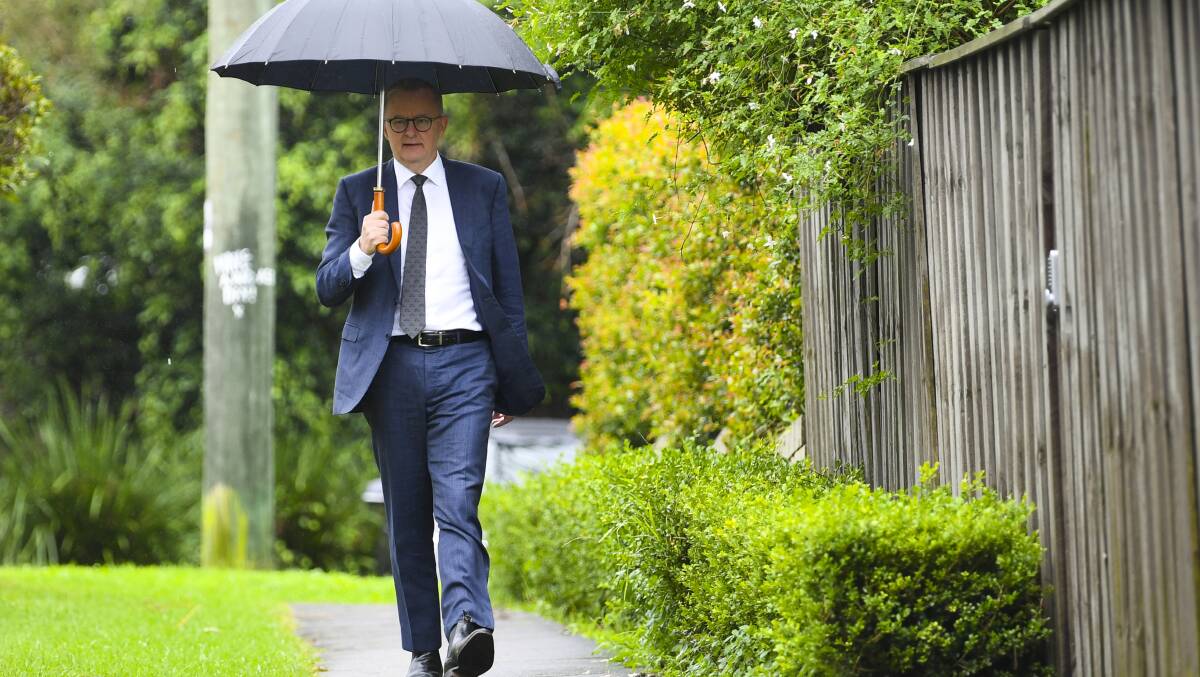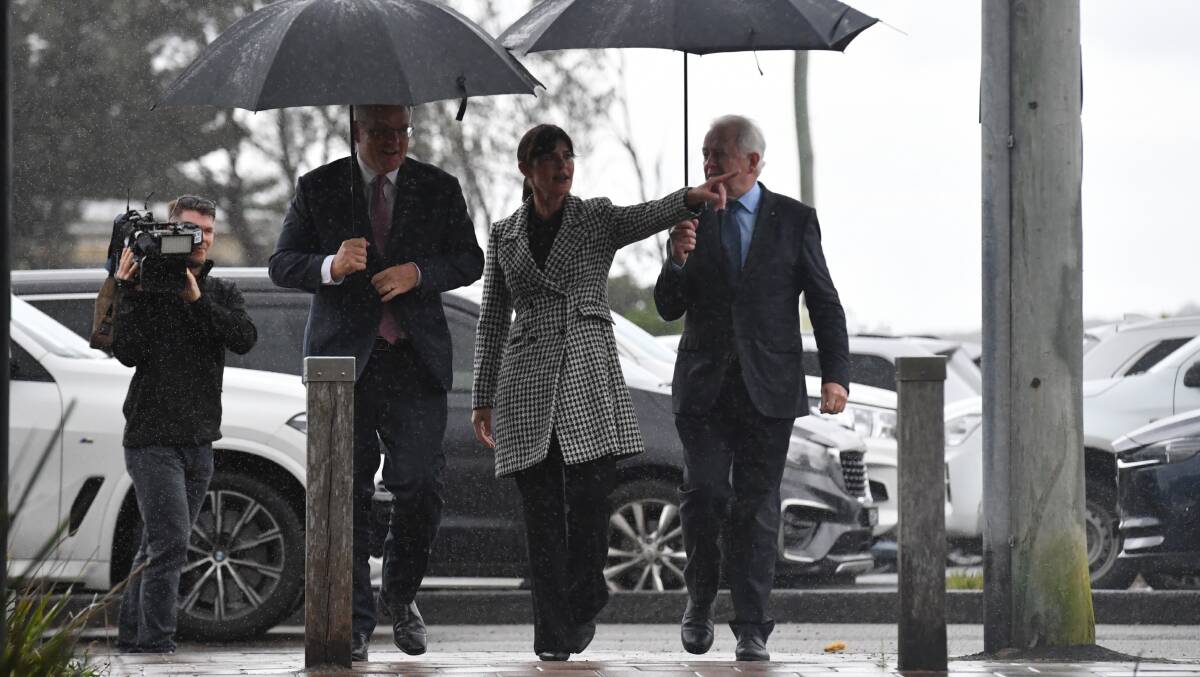The election row over wages has intensified after Scott Morrison branded Anthony Albanese a "loose unit" for advocating for a real pay rise for some of Australia's lowest paid workers.
Subscribe now for unlimited access.
$0/
(min cost $0)
or signup to continue reading
The Prime Minister launched another attack on his opponent's economic credentials after Mr Albanese supported raising the minimum wage to keep pace with Australia's soaring inflating - currently at 5.1 per cent.
Mr Morrison said the move would "throw fuel on the fire" of cost of living and interest rates.
The Labor leader fired back, accusing Mr Morrison of being "loose with the truth" and lashing his resistance to a $1-per-hour pay rise for cleaners and retailer workers.
A leading economist has backed in the Labor leader, saying 4 or 5 per cent wage increases shouldn't be considered extravagant.

The wages brawl dominated day 31 of the election campaign, which Mr Morrison spent in Newcastle and the Central Coast and Mr Albanese used to promote Labor's plan for cheaper childcare in North Sydney.
The fight erupted on Tuesday when the Labor leader said he "absolutely" supported a wage increase of at least 5.1 per cent.
Fronting reporters in Newcastle on Wednesday, Mr Morrison said Mr Albanese's call was "incredibly reckless" and demonstrated a lack of understanding about the link between wages, interest rates and the cost of living.
Mr Morrison attempted to link Mr Albanese's wages intervention with his economic gaffes at the start of the campaign.
'What [Mr Albanese] said yesterday, it is like throwing fuel on the fire of rising interest rates and rising cost of living," he said.
Coalition ministers have painted Mr Albanese's stance as an "unprecedented" intervention into the Fair Work Commission's process of setting the minimum wage.

The minimum wage is $20.33 a hour, or $772.60 a week, but is currently undergoing its annual review.
The Australian Council of Trade Unions this week upped its claim from 5 to 5.5 per cent, saying anything less would leave low-paid workers "drowning in bills".
The Australian Chamber of Commerce and Industry has called for a 3 per cent increase, warning that a 5 per cent hike would "inflict further damage" on small businesses.
Mr Morrison was asked on Wednesday if his dismissal of a 5.1 per cent rise meant he was comfortable with low-paid workers effectively suffering a cut to real wages.
He deflected the question, saying it was up to the commission to make the wages ruling.
READ MORE:
Mr Albanese doesn't support the unions' claim, but has made clear over the past two days that Labor believes wages shouldn't fall behind inflation.
But in a slight softening in his language from Tuesday, Mr Albanese denied he was advocating for wage increases to be tied to inflation. Such a stance could expose Mr Albanese if inflation continues to soar.
Mr Albanese and opposition treasury spokesman Jim Chalmers dodged questions on whether Labor would explicitly call for a 5.1 per cent increase in a submission to the wage case, insisting that its position was clear.
While Mr Morrison and employer groups are railing against it, economist and Centre for Future Work director Jim Stanford said a 4 or 5 per cent increase should be considered normal.
"After a decade of wage stagnation the goal posts have gradually shifted, so that a 4 or 5 per cent wage increase is considered extravagant. It isn't extravagant, it should be normal."
Dr Stanford said there was "no evidence whatsoever" that wage pressure was causing inflation to surge.




